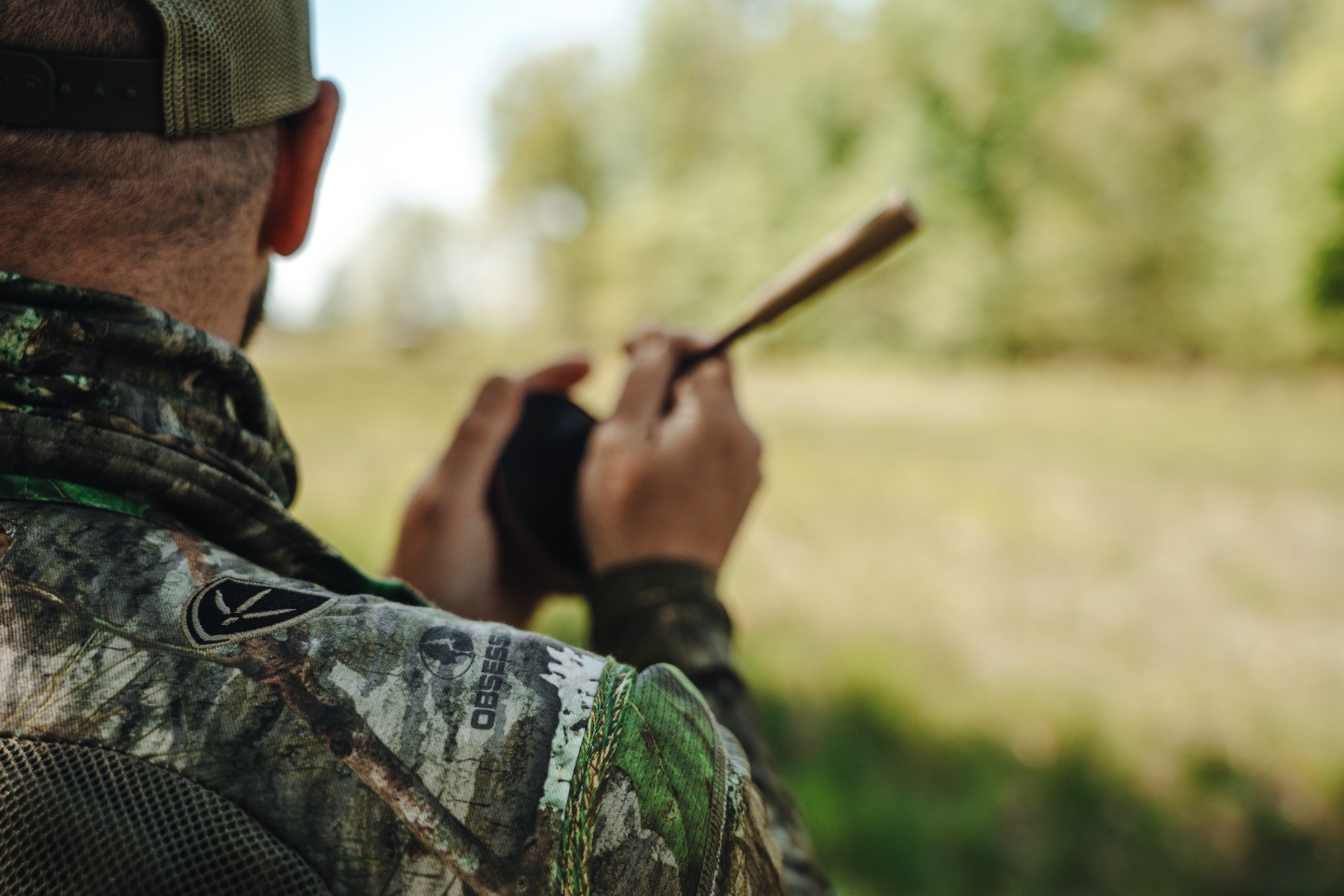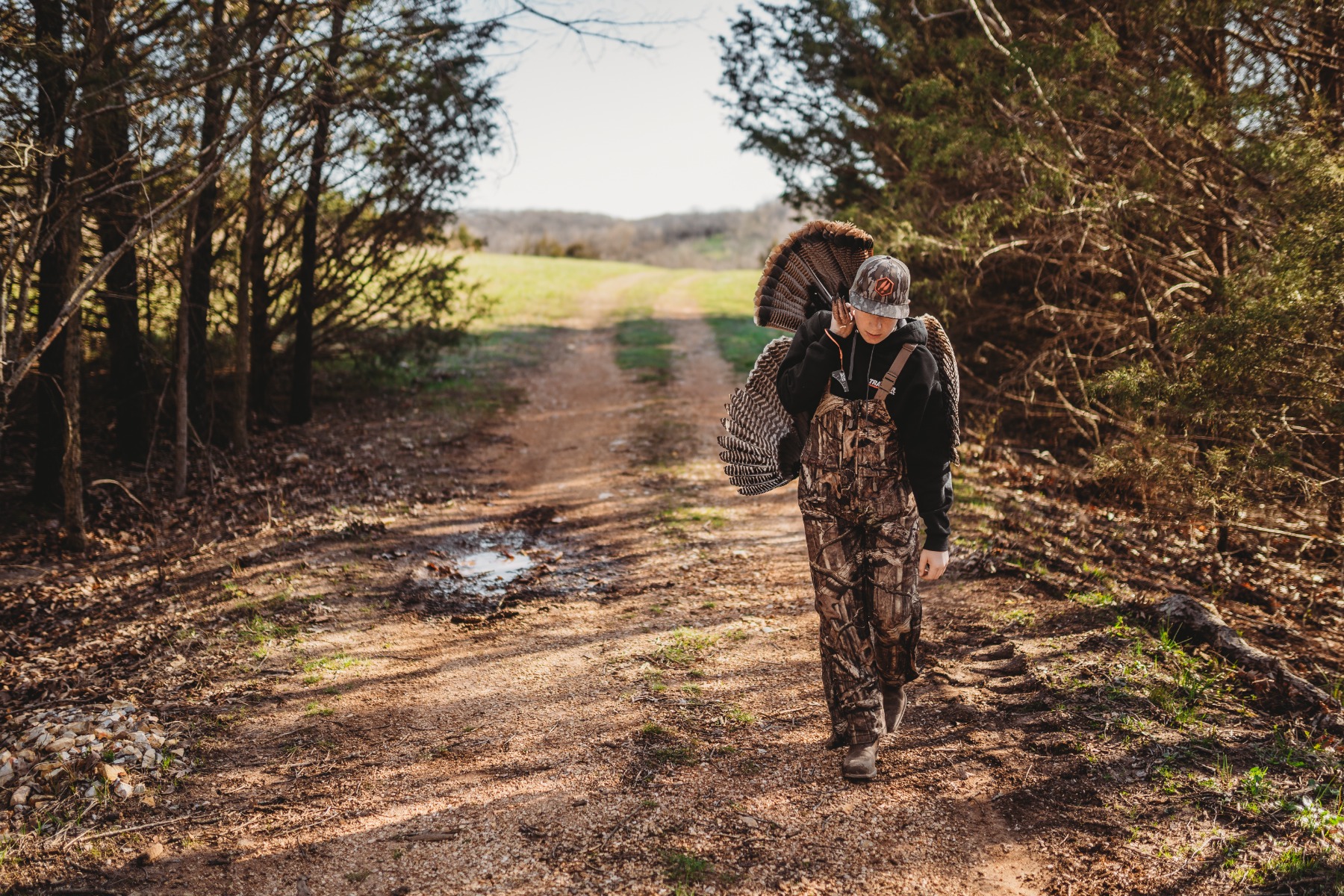Turkey hunting presents an exhilarating challenge for enthusiasts, requiring a blend of patience, skill, and understanding of turkey behavior. However, when the elements intervene, such as during rainy conditions, the pursuit becomes even more complex.
For many years, when a spring rainstorm was forecasted during turkey season, I would be devastated and reluctant to hunt on those damp, nasty days. Yet, as I have gained more experience over the years, I have realized that whether it is a few drops or an absolute downpour, the breeding season for turkeys is still in progress, and the possibilities of calling a tom into close range are still high. As a bonus for rainy-day hunts, wet feathers mean they will weigh more on the scale after the harvest.
Understanding Turkey’s Behavior in the Rain
To effectively hunt turkeys in the rain, it's imperative to grasp how these birds adapt their behavior in response to inclement weather. Turkeys exhibit a heightened sense of caution during rainfall, often opting to remain on their roosts for extended periods. My experience has witnessed gobblers stay on the roost for as long as two hours after normal fly-down times, when it is raining, or after a night with excessive rains. Reduced visibility and the masking effect of raindrops on ambient noise force turkeys to delay their morning fly-down, preferring the safety of elevated perches until conditions improve.
Furthermore, turkeys tend to prefer open areas during rain showers. The amplified noise within dense foliage diminishes their auditory perception, prompting them to seek refuge in expansive fields where they can better detect potential threats. These open spaces also serve as ideal locations for turkeys to dry their feathers post-rainfall, a crucial aspect of their grooming behavior. One of the most memorable small-town sayings I often hear from veteran turkey hunters when it rains is, “Go hunt the fields.”

Strategic Approaches for Rainy-Day Turkey Hunting
Sit And Wait
A cornerstone of successful turkey hunting in the rain involves positioning oneself strategically in open fields or clearings. Turkeys gravitate towards these areas due to improved visibility and enhanced maneuverability facilitated by the absence of dense vegetation. Utilizing a ground blind provides shelter from the elements while allowing hunters to observe turkey activity without disturbing their natural habitat. On many occasions, when I knew rain was in the forecast, I sat up my ground blind the day before to return to it when conditions became too wet to hunt comfortably. Speaking of comfort, when it is raining on a spring morning, you can find me sitting in my blind chair with a hot cup of coffee and a snack, waiting for turkeys to come to the field for safety or to dry off themselves.
Another great tactic when blind hunting in the rain is deploying decoys to lure turkeys within range. When turkeys come to the edge of a field, the decoys soon capitalize on the tom's instinctual curiosity and territorial behavior, making them come closer for a better look.
Be Ready When The Rain Stops
As the rain subsides and the skies clear, a window of opportunity emerges for hunters. Turkeys often become more vocal in the aftermath of rainfall, emitting characteristic gobbles that reverberate through the forest. To capitalize on this post-rain weather, hunters must remain vigilant, donning rain gear to withstand residual moisture and be ready to respond to turkey calls. Being in position and attuned to the surrounding environment enables hunters to capitalize on the heightened activity spurred by the end of rainfall.

Call Louder
Adjusting calling techniques to compensate for the noise generated by rainfall can significantly enhance one's chances of attracting turkeys. Amplifying the volume and using higher frequency turkey calls, such as a box call or a glass call, can penetrate the sound of the rain, capturing the attention of nearby birds amidst the fall of raindrops. However, exercising restraint and avoiding overcalling is crucial, as excessive noise may deter turkeys and diminish their receptiveness to further calls. Striking a delicate balance between assertiveness and subtlety is critical to maximizing the effectiveness of calling strategies in rainy conditions.

Turkey hunting in inclement weather requires understanding turkey behavior and a strategic plan. By leveraging insights into turkey habits during inclement weather and implementing targeted hunting approaches, enthusiasts can elevate their hunting prowess and embark on unforgettable rain-soaked adventures in pursuit of the elusive wild turkey. With patience, perseverance, and a dash of adaptability, the thrill of a successful rainy-day turkey hunt awaits those willing to embrace the challenge.











